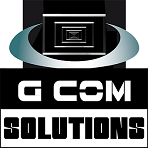- You are here:
- Home »
- Power Apps and Power Automate Training
Power Apps and Power Automate Training
Are you interested in learning about Power Apps and Power Automate? These two Microsoft tools can help you create custom business solutions and automate workflows without any coding knowledge. In this article, we will provide an in-depth overview of both tools and how you can get started with them.
What are Power Apps?
Power Apps is a low-code platform that enables users to create custom business applications for web and mobile devices. It allows you to connect to various data sources like Excel, SharePoint, Dynamics 365, and many more. With Power Apps, you can create a custom app that suits your business needs without hiring developers or coding skills.
Features of Power Apps
1. Drag-and-drop interface: Power Apps provides a user-friendly interface where you can drag and drop the components to build the app.
2. Templates: It has pre-built templates for various business scenarios. You can use them as a starting point for your app.
3. Connectivity: Power Apps provides connectivity to various data sources which enable you to create an app that can access and modify the data.
4. Customization: You can customize the app by adding your branding, logos, colors, etc.
Benefits of Power Apps
1. Cost-effective: As a low-code platform, Power Apps is a cost-effective way to build custom business applications.
2. Faster app development: With its drag-and-drop interface and pre-built templates, Power Apps enables you to develop an app faster.
3. Increased productivity: Power Apps enables you to automate the manual processes which can increase productivity and efficiency.
4. Better collaboration: Power Apps allows you to collaborate with others in real-time, which helps in building a better end-product.
What is Power Automate?
Power Automate is a cloud-based service that helps in automating workflows across various applications and services. It allows you to create automated workflows without any coding skills. With Power Automate, you can automate the repetitive tasks and reduce the manual effort required to complete them.
Features of Power Automate
1. Flow creation: Power Automate allows you to create a flow that connects to various applications and services.
2. Templates: It has pre-built templates for various business scenarios which can be customized as per the requirement.
3. Connectivity: Power Automate provides connectivity to various applications and services which enables you to create a flow that can access and modify the data.
4. Customization: You can customize the flow by adding your business logic, actions, and conditions.
Benefits of Power Automate
1. Cost-effective: As a cloud-based service, Power Automate is a cost-effective way to automate workflows across various applications and services.
2. Faster automation: With its pre-built templates and drag-and-drop interface, Power Automate enables you to automate workflows faster.
3. Increased productivity: Power Automate enables you to automate the repetitive tasks which can increase productivity and efficiency.
4. Better collaboration: Power Automate allows you to collaborate with others in real-time, which helps in building a better workflow.
How to get started with Power Apps and Power Automate?
Microsoft provides various resources to get started with Power Apps and Power Automate. Here are the steps to get started:
1. Go to the Power Apps and Power Automate page and sign up.
2. Microsoft provides various tutorials and courses to get started with Power Apps and Power Automate. Follow them to get a better understanding of the tools.
3. Microsoft also provides various documentation and community forums that can help in building custom solutions.
4. There are various certifications provided by Microsoft that can validate your skills in Power Apps and Power Automate. You can take the certification exams to showcase your skills.
Conclusion
Power Apps and Power Automate are two powerful tools that can help you create custom business solutions and automate workflows. They enable you to develop an app and automate workflows without any coding knowledge. With its user-friendly interface and pre-built templates, Power Apps and Power Automate can save your time and money. Follow the above steps to get started with Power Apps and Power Automate. Happy learning!

